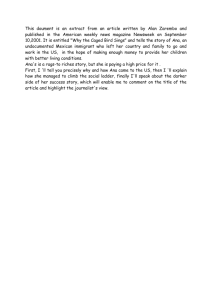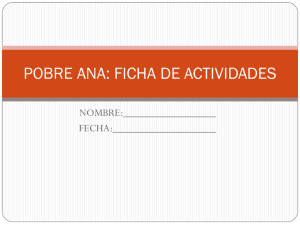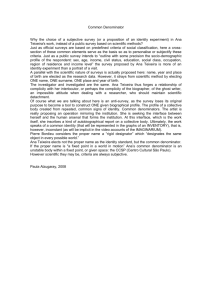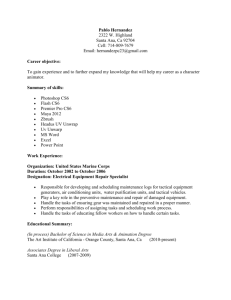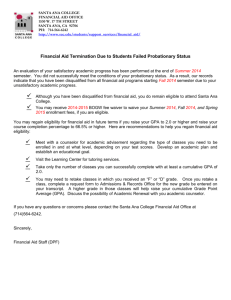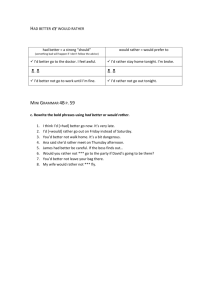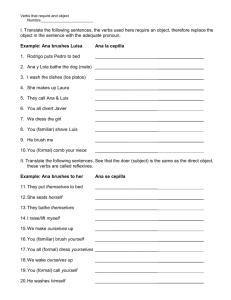Ana's Story To reach New York City, Ana crawled into the United
advertisement
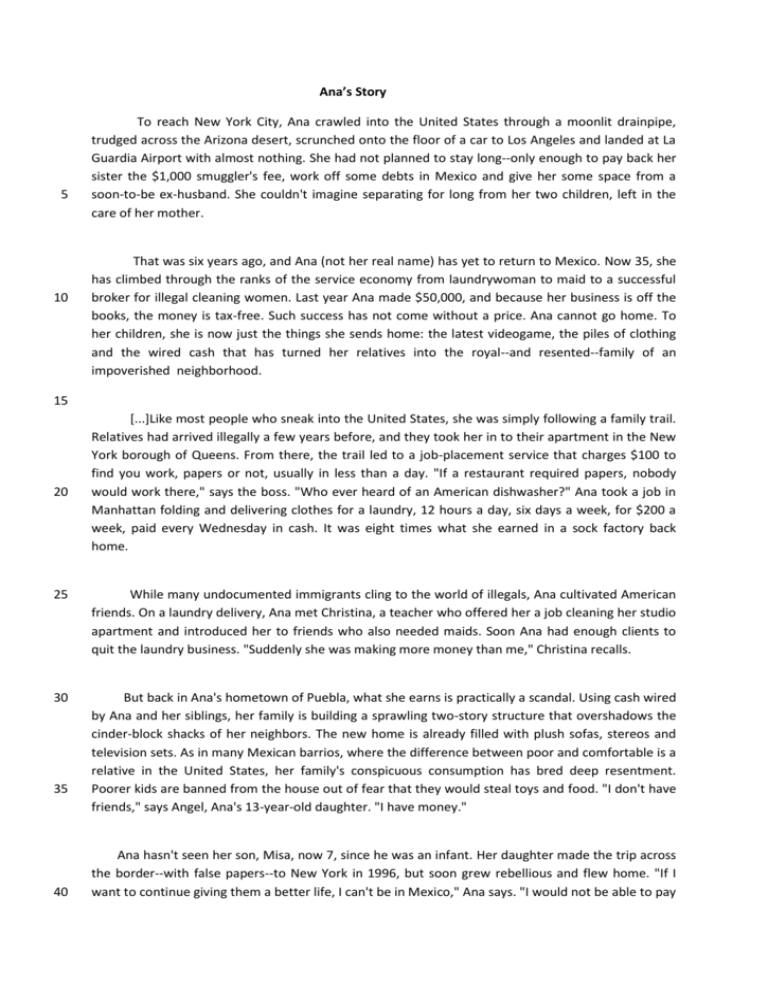
Ana’s Story 5 10 To reach New York City, Ana crawled into the United States through a moonlit drainpipe, trudged across the Arizona desert, scrunched onto the floor of a car to Los Angeles and landed at La Guardia Airport with almost nothing. She had not planned to stay long--only enough to pay back her sister the $1,000 smuggler's fee, work off some debts in Mexico and give her some space from a soon-to-be ex-husband. She couldn't imagine separating for long from her two children, left in the care of her mother. That was six years ago, and Ana (not her real name) has yet to return to Mexico. Now 35, she has climbed through the ranks of the service economy from laundrywoman to maid to a successful broker for illegal cleaning women. Last year Ana made $50,000, and because her business is off the books, the money is tax-free. Such success has not come without a price. Ana cannot go home. To her children, she is now just the things she sends home: the latest videogame, the piles of clothing and the wired cash that has turned her relatives into the royal--and resented--family of an impoverished neighborhood. 15 20 [...]Like most people who sneak into the United States, she was simply following a family trail. Relatives had arrived illegally a few years before, and they took her in to their apartment in the New York borough of Queens. From there, the trail led to a job-placement service that charges $100 to find you work, papers or not, usually in less than a day. "If a restaurant required papers, nobody would work there," says the boss. "Who ever heard of an American dishwasher?" Ana took a job in Manhattan folding and delivering clothes for a laundry, 12 hours a day, six days a week, for $200 a week, paid every Wednesday in cash. It was eight times what she earned in a sock factory back home. 25 While many undocumented immigrants cling to the world of illegals, Ana cultivated American friends. On a laundry delivery, Ana met Christina, a teacher who offered her a job cleaning her studio apartment and introduced her to friends who also needed maids. Soon Ana had enough clients to quit the laundry business. "Suddenly she was making more money than me," Christina recalls. 30 But back in Ana's hometown of Puebla, what she earns is practically a scandal. Using cash wired by Ana and her siblings, her family is building a sprawling two-story structure that overshadows the cinder-block shacks of her neighbors. The new home is already filled with plush sofas, stereos and television sets. As in many Mexican barrios, where the difference between poor and comfortable is a relative in the United States, her family's conspicuous consumption has bred deep resentment. Poorer kids are banned from the house out of fear that they would steal toys and food. "I don't have friends," says Angel, Ana's 13-year-old daughter. "I have money." 35 40 Ana hasn't seen her son, Misa, now 7, since he was an infant. Her daughter made the trip across the border--with false papers--to New York in 1996, but soon grew rebellious and flew home. "If I want to continue giving them a better life, I can't be in Mexico," Ana says. "I would not be able to pay the bills. I have to be here". Ana's mother sometimes wonders if the family is paying too high a price for their prosperity. Four of her eight children are now in the United States, all illegally. "It was better before," she says. "Although we were poor, we were content. Now we have everything, thanks to them, but they are not here." 5 10 Meanwhile, Ana has been sucked into the culture of consumerism. She arrived with one pair of shoes. She now has 60. The shelves of her apartment are filled with videos. She orders $3.50 cappuccinos. And she admits that it is her new taste of the good life, almost as much as her concern about her family income, that keeps her in the United States. "Mexico is a strange country to me now," she says. "I am part of here." Alan Zarembo in Newsweek, September 10, 2001
